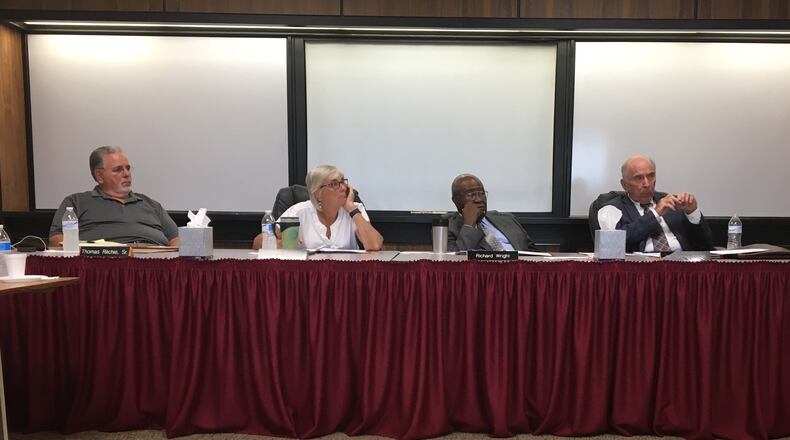Shaver was fired, and another employee, William Landis, retired after being accused of selling scrap metal that belonged to the city without authorization.
RELATED: Two city employees out after scrap-metal sales probe
Shaver claims he did not take part in the transaction, but Landis said it was a common practice to hold onto the cash from scrap sales for work-related expenses and parties.
City officials, however, have said the city has tight restrictions on petty cash funds as well as on what must be done with payments from recycling materials.
We are waiting to hear back from the city to respond to the testimony of the contractor.
This week, 45-year-old Russell Dennis testified before the Civil Service Board about his time working as a contractor for the city. The board is holding hearings on Shaver’s dismissal.
Dennis said he was employed by Triton Services as a senior journeyman but did tasks for the city practically every day for seven years, until last summer when he went on sick leave.
MORE: Ohio ranks 1st in U.S. for metal theft
City employees and contractors often have left-over and torn-out materials when they perform large-scale projects, such as replacing equipment or piping, rewiring buildings or upgrading or modernizing electrical circuits, Dennis said.
A variety of workers, including himself, took excess materials to local recycling centers where they received payments, typically in cash, that were turned over to supervisors, Dennis testified.
Dennis testified he was personally instructed to recycle scrap materials on multiple occasions by department supervisors and managers.
Dennis said at the hearing that supervisors of multiple departments kept or were aware of these funds, which he says were used for employee barbecues, lunches, equipment and work-related purchases.
Dennis said he was at an employee barbecue a few years ago where several supervisors stated that they had paid for the food with money from a petty cash fund.
MORE: City of Dayton sues drug makers for role in overdose epidemic
Dennis’ testimony rebuts those made by multiple department managers and supervisors during a police investigation into scrap metal sold in October at First Street Recycling by Landis, a city employee of 28 years. An employee at the recycling center contacted police when Landis allegedly insisted he be paid in cash and the receipt be put in his name, according to a police report.
Landis admitted to selling city-owned scrap on at least two occasions and agreed to repay $956 to the city, according to a separation agreement obtained by this newspaper.
Landis told police he did not receive prior authorization but that he thought it was OK to do because other employees “do it all the time,” according to a police report.
Landis was placed in a diversion program that allowed him to avoid criminal prosecution for theft in office, according to the county prosecutor’s office. Shaver accompanied Landis during the October visit to the recycling center, according to police and city records.
A city of Dayton facilities supervisor and a facilities manager told officers they were unaware of a petty cash fund and did not authorize one, a police report said.
The facilities manager told police that workers who sold city-owned scrap for cash were required to get a receipt and turn in the money, which was recorded.
Shaver also faces other Civil Service charges, including allegedly conducting business at First Street Recycling in May while on sick leave and improperly using the city’s tax exempt account for a personal matter. He denies wrongdoing.
About the Author

